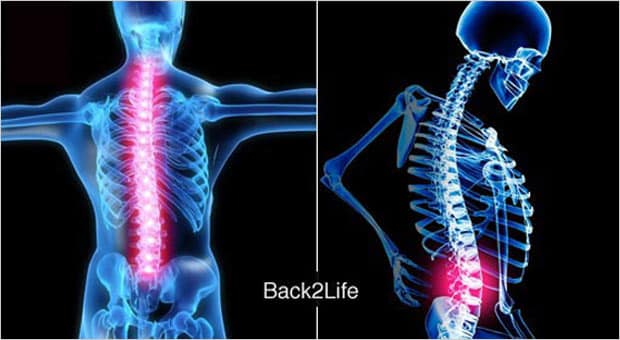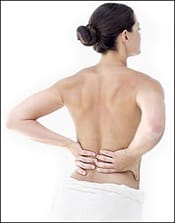How your bite can cause back pain

A “bad bite” (in dental terms called a malocclusion) often causes an imbalance in the jaw-to-skull relationship, which in turn twists the jaw into a strained position that refers pain to the muscles in the neck, shoulders, and back. (Pain can occur in the upper back as well as the lower back.)
Your muscles work as a team. Seldom does a single muscle work without other muscles in the team joining in. The bones in the neck, especially the atlas and axis, are intimately involved with the muscles for chewing, biting, talking, breathing, and head posture. Sore, tight, contracted muscles of the jaw will tilt the head and shoulders causing compensation from neck, shoulder and back muscles.
Unbalanced posture

A general dentist who offers neuromuscular dentistry solutions like Dr. Westman, understands that the bones, joints, muscles, and nerves in the face and neck have a complex relationship. They work to correct the bite, relieving strain on the jaw and the surrounding muscles.
